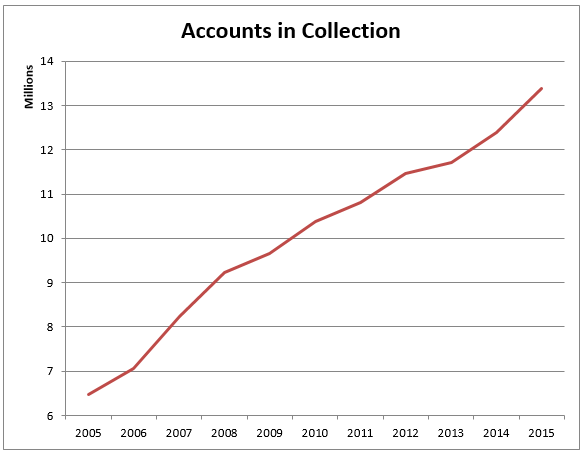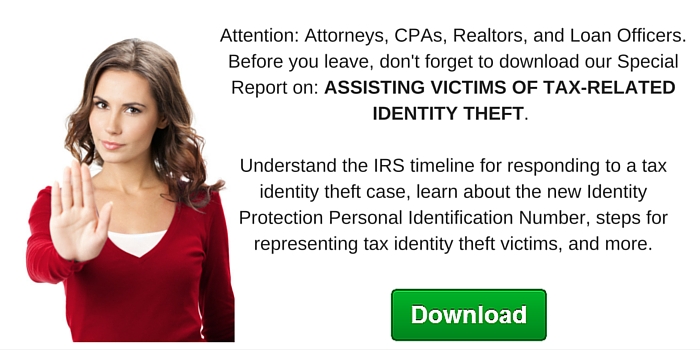Tax Problem Resolution
Here are some of the IRS Problems Resolution services we offer:
- Have you received an IRS audit notification? See IRS Audit Representation
- Haven’t filed your tax returns for years? See Non-Filed Returns
- Owe the IRS a lot of money in back taxes? See Offers In Compromise
- Need more time to pay? See Payment Plan.
- Do you have Payroll Tax Problems?
- Has the IRS placed tax liens on your home? See Liens.
- Is the IRS threatening to seize your bank account and take your money out of the bank? See Levies.
- Is the IRS threatening to take your paycheck, 401(k), and other retirement accounts? See Wage Garnishments.
- Is the IRS threatening to seize your personal property? See IRS Seizures.
- Like to get out from under your tax burden completely? See Bankruptcy.
- Like to get out of a tax debt caused by misdeeds committed by your spouse? See Innocent Spouse Relief.
- Like to see what the IRS has on you? Request a copy here. We recommend you speak with us first to avoid any unnecessary alerts. Your IRS File.
Attention: Attorneys, CPAs, EAs, Realtors, Loan Officers – Join our growing referral partner network. Get more info below.

How We Help Mortgage Lenders Close More Deals

Attention realtors: Closings control commissions. Liens control closings.

How We Partner With Attorneys To Help Their Clients

Why CPAs And Tax Pros Should Partner With Us
If it seems like the IRS is growing increasingly onerous, it’s because it is. Why?
The Tax Gap
The Tax Gap is defined as the amount of tax liability faced by taxpayers that is not paid on time. That amount is trending sharply upward, as shown in this graph:

The tax gap arises when taxpayers, whether intentionally or inadvertently, fail to accurately report tax liabilities on tax returns (underreporting), pay taxes due from filed returns (underpayment), or fail to file a required tax return altogether or on time (non-filing). The tax gap is spread across the five types of taxes that IRS administers—individual income, corporate income, employment, estate, and excise taxes. Underreporting, particularly of individual income taxes, accounts for most of the tax gap‑estimated at over $376 billion.
The IRS Collection Division reported 13.4 million taxpayer accounts in inventory at the end of 2015.
Consequently, the IRS has focused their attention on enforcement. If you’re on the receiving end, you’ll quickly learn that the IRS is ruthless. We have the skills and resources to help you achieve a satisfactory outcome when dealing with the IRS.
IRS Audit Representation
Nothing strikes fear in the hearts of people more than receiving an IRS Audit letter in the mail. Audits take significant time away from your business and family, requiring you to gather mounds of records substantiating each and every item reported on your tax return and develop a comprehensive understanding of tax law.
The IRS leaves no stone unturned in its mission to determine the accuracy of your tax return. If you don’t comply with the Auditors’ wishes, the IRS will recalculate your tax and send you home with a hefty tax bill as your parting gift.
Many taxpayers decide to handle a tax audit themselves, and discover they may have been “penny wise,” avoiding a representative’s fee, but “pound foolish,” because they received a substantial bill for a significant tax deficiency.
You see, IRS Auditors are trained to extract more information from you than you have a legal obligation to provide. IRS Auditors know that most people fear them and are ignorant of their rights. As a result, they know they can use that fear and ignorance to their advantage.
Rarely do our clients even have to talk with the IRS. We handle it all for you so that you need not take time off of your business or job to handle the bureaucracy and paperwork of the IRS. No lost wages or business. You simply forward notification of an audit to us and we handle it from A to Z.
Unfiled Tax Returns
Every day the massive computer center at the IRS is getting more sophisticated, it’s just a matter of time before they catch up with you.
This is not a situation to take lightly; failing to file your tax returns is a criminal offense. If you do not file, you can be prosecuted and punished with potential jail time, one year for each year not filed. Why risk potentially losing your freedom for failing to file your tax returns?
Let us give you the peace of mind you deserve by helping you get in compliance with the law. If you voluntarily file your delinquent returns you’ll likely avoid further problems other than having to pay the interest and penalties.
If you wait for the IRS to file your returns for you, they are filed in the best interest of the government, usually with none of the deductions you are entitled to.
Before anything can be done to extract you from this predicament all the returns must be filed. You must be current. In most cases, you will likely owe taxes, interest, and penalties after the returns are filed. Once we see how much is owed, we’ll set a course of action to get you off the hook!
Back Taxes
You have filed your returns but didn’t have the money to pay what was owed. You may think, “Oh well‑I’ll catch up next year.” Before you know it, you find yourself several years in arrears and suddenly there is a notice from the IRS, stating that you owe three or four times the original amount.
It’s truly amazing how fast tax penalties and interest add up. Now you have a choice‑you can write a big fat check and pay the full amount, including interest and penalties. Or you can just keep ignoring them while the penalties and interest keep piling up.
Offers in Compromise
Did you know that you can settle your debt with the IRS for just pennies on the dollar with their Offer in Compromise program? The program allows taxpayers to settle with the IRS on tax debt that has been incorrectly assessed or for liabilities they cannot afford to pay.
The IRS Code states: “We will accept an Offer in Compromise when it is unlikely that we can collect the full amount owed and the amount you offer reasonably reflects the collection potential…” (Internal Revenue Code section 7122).
Often it is possible to fully and completely eliminate the taxes you owe—including all penalties and interest—at an enormous discount. There is no preset bottom limit that the IRS will accept to settle your debt, especially if your offer is done “right.”
If done correctly your debt may be settled for a fraction of what you presently owe. The key is to determine the least amount that the IRS will accept from you before you make the offer.
Installment Agreements
If you don’t qualify for the IRS Offer In Compromise program, a Payment Plan may be the way to resolve your problem. Setting up a payment plan with the IRS gives you a little more time to pay off your tax debts.
Unfortunately, penalties and interest will continue to be charged on your outstanding balance as you pay the debt off. You are required by law to pay the interest on your tax debt.
Payroll Tax Problems
The IRS views failing to pay payroll taxes as the cardinal sin of tax delinquency because a large portion of the payroll taxes are your employees’ withholdings. Not paying your company’s payroll taxes is tantamount to stealing your employees’ money in the eyes of the IRS.
As a result, penalties for failing to pay your payroll taxes and filing your payroll tax returns on time are much more severe than other types of penalties. They can drastically multiply the amount you owe in a very short time.
If you are behind on paying payroll taxes for your company, WATCH OUT! The IRS is extremely aggressive pursuing collection of this type of tax. They would rather seize your business assets, close you down, sell your assets at auction, and put you out of business than allow you to continue amassing additional payroll tax liabilities.
If you are behind on your payroll taxes, DO NOT meet with the IRS on your own. How you answer their initial questions can determine whether you stay in business or not. It is critical you hire a professional representative who knows how the IRS operates.
Release of Tax Liens
Federal Tax Liens can really make your life miserable! When your taxes are not paid the IRS establishes a lien against all of your assets (especially real estate). This gives the IRS the legal right to collect taxes from the sale of your assets, which includes just about everything you own.
The lien can be against you, your spouse, or your company. A lien against your company would seize your accounts receivable. At this point everything you own is just one short step away from becoming the property of the United States Government.
Liens filed against you by the IRS also show up on your credit report and often prevent you from opening a checking account or borrowing against any assets, like your home. The banks don’t want the extra work when the IRS comes in to take your money.
With a Federal Tax lien on your record, you can’t get a reasonable loan to purchase a car. Think about paying 18-22% interest on a car that is already too expensive. You definitely cannot buy or sell any Real Estate. The list is endless.
Levies
Levies can really do a lot of damage and even ruin your life. A levy is the IRS’s way of getting your immediate attention. What they are saying is, we have tried to communicate with you but you have ignored us. Levies are used to seize your wages and whatever other assets you have. If you own it, they can take it. That includes checking accounts, auto’s, stocks, bonds, boats, paychecks, and even Social Security checks!
Imagine waking up one morning and finding all your bank accounts have been cleaned out. They will take every dime. If this amount did not cover what is owed, they’ll keep taking your money until you cover your tax liability. They know that levying your bank account will cause checks to bounce, alerting many people that you have tax problems. But they don’t care! Their sole objective is to collect the taxes owed. Period.
As bad as that is, a worse method is a wage levy (or garnishment). That’s when most of your pay check goes to the IRS, they don’t leave you enough to pay the bills, and most of your check goes to the IRS each and every week until the debt is paid.
If that doesn’t accomplish what they want, they’ll pull out all the stops. They’ll seize your assets, and sell them at auction. That includes everything you own; home, cars, boats, jewelry, motorcycles, insurance polices, retirement funds, anything of value.
We are often able to get those levies released and help you get out of this terrible situation. Our goal is to get you even with the IRS, with what you can afford, and let you start life anew.
Release of Wage Levies
You received a notice of “intent to Levy” 30 days ago and you forgot or ignored it. Now it’s Payday. Expecting a check, you open the envelope and find that the IRS has taken most of your money. What’s left is not enough to pay the rent, car payment, buy groceries, or pay the rest of the bills. This action will continue on every check due you, until the tax owed is paid in full.
Now you’re in big financial trouble. No matter how hard you plead with your employer they can not give you your money. Because once a wage garnishment is filed with your employer, your employer is required by law to collect a large percentage of each of your paychecks.
We are regularly retained to negotiate the release of IRS wage garnishments by arranging a payment plan. The payment plan negotiated by us is always more favorable than any IRS wage garnishment. It allows you to receive your whole paycheck without fears of future wage garnishments.
IRS Seizures
Unlike the levy which involves intangible assets such as your bank account, a seizure is the taking of physical assets, such as your home or car. Seizures usually happen in aggravated cases when someone ignores many requests by the IRS over a long period of time to pay their outstanding taxes.
A Seizure should not be taken lightly. The IRS will ultimately pursue seizure of your physical assets. Don’t think they won’t. Many a newspaper or television show has reported citizens being forced out of their homes after it was sold at an IRS auction, often for as little as half its value.
When the IRS seizes your assets they want to quickly sell them at auction. They often get less than half your assets value, so they often seize everything you own including your home, cars, boats, jewelry, motorcycles, insurance polices, and even your retirement funds.
Bankruptcy
Your back taxes, interest and penalties can be wiped out by filing bankruptcy. If you qualify, bankruptcy can be the best solution to resolve your crushing tax problems.
Unfortunately, not everyone qualifies to wipe out their tax debt in bankruptcy. Certain rules have to be met first. If you file bankruptcy and don’t meet the rules, the IRS will still be in hot pursuit after your bankruptcy is over. Proper pre-bankruptcy planning is key to determining if bankruptcy is or can be a viable solution.
Innocent Spouse Claims
Did you know that you can get out of the tax debt due to the misdeeds or fraud committed by your spouse? Innocent Spouse Relief was designed to alleviate unjust situations where one spouse was clearly the victim of fraud perpetrated by their spouse or ex-spouse.
If you qualify for Innocent Spouse Relief, you may not owe any tax.
Penalty Abatement
The IRS penalizes millions of taxpayers each year. They have so many penalties that it’s hard to understand which penalty they are hitting you with.
The most common penalties are: Failure to File and Failure to Pay. Both of these penalties can substantially increase the amount you owe the IRS in a very short period of time. To make matters worse the IRS charges you interest on penalties.
Taxpayers often find out about IRS problems many years after they have occurred. This causes the amount owed to the IRS to be substantially greater due to penalties and interest.
Some IRS penalties can be as high as 75%-100% of the original taxes owed. Often taxpayers can afford to pay the taxes owed, however the extra penalties make it impossible to pay off the entire balance.
The original goal of IRS imposing penalties was to punish taxpayers in order to keep them in line. Unfortunately, they have turned into additional sources of income for the IRS. The IRS does abate penalties. Therefore, before you pay the IRS any penalty amounts, you may want to consider requesting the IRS to abate your penalties.
Get Your IRS Tax File
Did you know that you can obtain a copy of your IRS file? Most people would be surprised to learn how much the IRS knows about them. Obtaining a copy of your IRS file is critical in analyzing the options available to resolve your tax problems.
Requesting copies of your IRS file is best done by a professional who understands how to obtain them without raising any red flags as well as how to interpret the information in your file.
